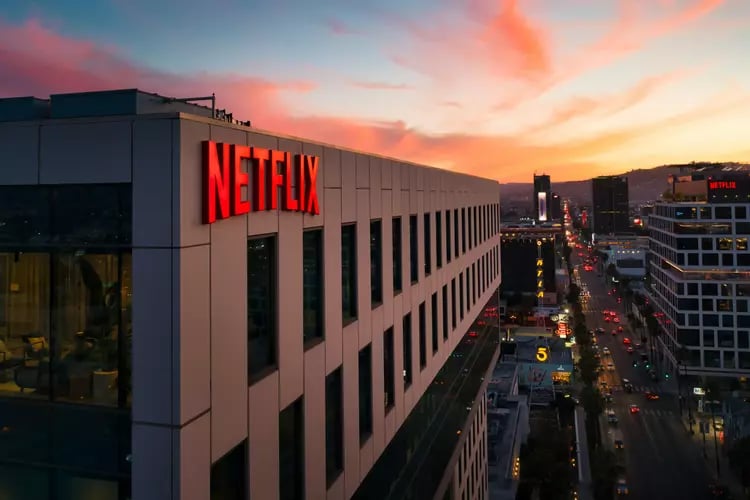
Why Netflix Sucks Right Now
Netflix sucks right now and Netflix stock price has been taking a beating lately and people are wondering what’s causing it. Sure, NASDAQ stocks haven’t had it great recently so that could be the main reason. We decided to take a closer look at the probable reasons and make a list. Here are 8 reasons why Netflix sucks right now. Let’s begin.
1. Netflix Price Increases
While the company is able to raise prices, it is a bad time for them to do so. The economy is still weak and Americans are worried about the future. Inflation is already squeezing their budgets. However, the company has given consumers advice on how to save money. One way to save money on Netflix is to switch to a by-mail subscription service. In addition, users can also dump the service if the price increase is too much.
While it is hard to blame the company for its slowdown, it is possible that it was a contributing factor. The company began as a cheaper alternative to cable TV and inserted ads in its programming.
As a result, it lost around 600,000 subscribers in the U.S. and Canada. The company blamed the increase in price for most of the loss but said that the decline was to be expected. But it isn’t just price increases that are to blame for Netflix’s decline. It also has been difficult to access Netflix in many parts of the world, due to blocking VPN providers.
2. People Are Going Back To Work
A recent announcement from Google confirmed that the company will bring its workers back to the office. The company recently told employees in the San Francisco Bay Area and other US cities that starting April 2022, most employees will be back at work for three days a week. Some workers are choosing to stay in the office longer, but managers have the option to mandate that employees work for more hours each week. Ultimately, the decision will be up to the employees.
In addition to the dramatic shift in culture, Netflix executives have also had to grapple with preserving their company’s culture. The company grew from 2,000 employees at the end of 2013 to over 11,000 last year, with most of the new hires coming from Hollywood and others overseas. Hollywood corporate cultures do not always translate to the Silicon Valley corporate culture, so the company has struggled to keep the company’s culture intact.
Despite the sweeping changes, some major corporations have responded to these recent changes by implementing flexible work models for their employees. Some companies have taken the approach of implementing flexible work hours and ad-free policies.
While Netflix’s new approach to password sharing has been praised by some, others have chosen to focus on their people’s personal situations. While this may not seem like an immediate change, a new report by CNN found that Netflix’s layoffs will likely cause some companies to look more favorably on employees with strong work ethics.
3. Mediocre Quality of Recent Shows
The newest Netflix shows are not the best examples of quality television. They are acceptable for casual viewing but aren’t great enough to capture our attention and earn our devotion over several seasons. Unlike the best television shows, these recent Netflix series don’t have a high production value and are thus unlikely to earn our devotion. We should not expect the quality of these shows to improve as they gain popularity. However, we should not be disappointed by this.
Netflix Original films and series have become poorer than they used to be. The average IMDb score for Netflix films is below the average, meaning that there’s a 50% chance that a movie on the platform will get a bad/mediocre rating. In contrast, most of the Netflix Original shows released in recent months have received good ratings. This shows the importance of original content on Netflix. We recommend the streaming service based on your personal preferences, rather than its popularity.
However, Netflix’s original content has always been lacking. In many cases, Netflix funds crap in the hopes of developing one “unicorn” show. This means that Netflix produces more bad than good shows and rarely promotes these shows. Regardless of the quality, we can still consider Netflix shows to be good because of its wide user base and reputation. Despite their poor quality, Netflix’s audience is still growing and we can’t blame them for not trying their best.
4. Increased Competition
Increased competition is one reason Netflix is dying. Netflix has struggled to attract new customers, even in the US. The company has only recently taken India seriously. Disney Plus has 46 million subscribers and Netflix is only now starting to take India seriously. The company recently suspended its operations in Russia, following the country’s invasion of Ukraine. But now that its rival has emerged as a major player in the Indian market, it’s hard to keep up with its growth.
Increasing competition is a natural part of the evolution of the streaming industry. While Netflix was early in the game, it failed to innovate enough to maintain a lead over its competitors. Now, the video giant has to adapt to stay competitive, or else risk losing market share.
This means embracing new technologies and rethinking its business model. This is why Netflix must shift its strategy. It must maintain its lead over the subscription video bundles market as 35% of US households are expected to cut the cord by 2024.
While it is important to maintain a competitive advantage, increased competition is not the only reason why Netflix is dying. The lack of must-see content, increased competition, and conflict in Ukraine are other factors that contribute to Netflix’s sagging subscription numbers. Although it is still the leading streaming service in the US and Canada, Netflix has been losing subscribers globally. In its latest quarterly results, the company lost nearly 200,000 paid members and warned that its subscriber numbers will fall by as much as two million during the second quarter.
5. Inflation
Many households are finding that their spending habits have changed as a result of the rising cost of living, and they’re turning away from streaming services like Netflix. Inflation has made it harder for households to spend on non-essential items, including televisions and movies.
As a result, Netflix has experienced a drastic drop in stock prices. This decline in stock price is directly related to the fact that the streaming service has recently raised its prices in the U.S. and Canada. Moreover, Netflix’s stock price has fallen by 35 percent, making it a particularly bad time to invest in this industry.
While Netflix’s stock price is back to the levels reached in December 2017, the business remains solid and inflation is now at an all-time high of 8.5%. With this, Netflix is a good value growth stock to consider for your portfolio, especially if you’re looking for an investment bargain during a rising inflation period.
6. Questionable Shows and Political Slant
Netflix is increasingly exposing itself as an extremely liberal-sided media platform. Their shows often embed a political slant or questionable morals, making other views seem diabolic and historically incorrect.
While young audiences tend to be left-wingers, there are increasing numbers of right-wingers who watch the service. Netflix’s political slant has drawn criticism time and time again. Conservatives were upset at their obvious political leanings and called for Netflix to rethink some of its programming choices.
7. Limited Amount of Netflix Exclusives and Lack of a Strong Production Base
The Netflix catalog is shrinking. In the last few years, the service has cut more than a third of its weight in original content. Its recent acquisitions have further reduced the number of Netflix Exclusives. However, it’s still not the end of the world. In addition to removing older and more obscure shows, it is also phasing out other shows it does not have the right to distribute
8. Account Sharing Abuse
A study by Magid found that 46 percent of streaming video-on-demand customers share their log-in with other people. That’s not surprising, as more than half of those users believe that they will use the shared log-in over again. But it’s worrying because more people who pay for Netflix are likely to watch more content and boost the bottom line. So is account sharing hurting Netflix’s bottom line?
As a result, Netflix is testing ways to encourage these freeloaders to pay for their services. It recently rolled out a payment structure for extra users in Latin America. However, it’s unclear whether it’ll be rolled out in the U.S. anytime soon. That’s because Netflix has standards for trustworthiness that they use to evaluate the financial health of businesses. And while they don’t expect to make a lot of money from these changes, they are taking steps to reduce their losses.
Netflix’s new policies will likely discourage users from sharing passwords with others. Netflix’s current pricing policy allows users to share up to eight passwords with as many people as they want, although the company has tested the policy in countries like Chile, Peru, and Costa Rica.
If the test is successful, Netflix is likely to roll out similar policies in other regions. In addition, the company could charge for password sharing outside the home. Until then, the company has not announced any concrete global strategy.
Final Thoughts:
Netflix got in first with the subscription model for streaming, and it made them the global behemoth it is right now. The problem with being the first to do it is being able to sustain a business model which is counterintuitive for long-term success.
It’s difficult to assume that Netflix can prevent other studios from pulling out and creating their own platforms e.g. Paramount Plus, Disney Plus. The problem lies with not having your own in-house production outfit to carry you with exclusives and keep users happy. Netflix has tried solving its problems by recklessly giving out contracts to questionable artists, and it’s hurt them now that competition is starting to saturate the market.



